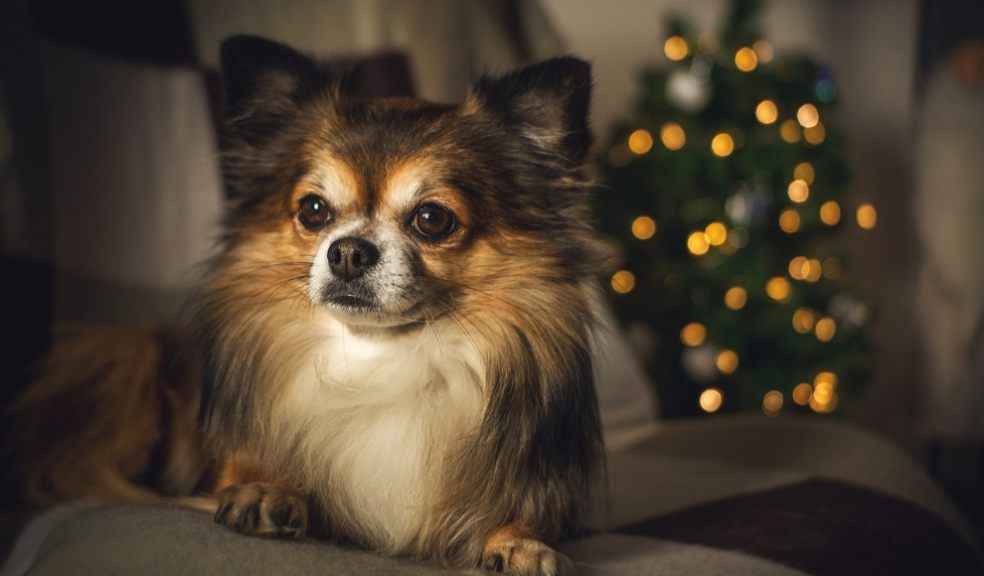
Kennel Club warns dog owners of Christmas chocolate poisoning surge
New statistics released today (4 December) by The Kennel Club shows that dogs being treated for eating toxic chocolate soars in December and January, compared to the rest of the year. The sweet treat can be deadly for dogs and, as such, the organisation is urging pet owners to be vigilant this festive period, not only during Christmas, but throughout the following months when leftovers in the home are rife.
The data, collected by Kennel Club Pet Insurance, provided by Agria, revealed that nearly a third (31%) of all claims for chocolate poisoning last year were made during the Christmas period (December 2023-January 2024) while January was the highest month overall, with claims more than double the monthly average (an increase of 106%) indicating that our four-legged-friends are taking advantage of the post-Christmas lull to get their paws on dangerous leftover chocolates.
Robin Hargreaves, Senior Veterinary Advisor for Agria Pet Insurance, said: “Chocolate can be very dangerous to your dog, the risk will vary according to the amount and type of chocolate consumed and the weight of your dog. Symptoms can vary, but include sickness, upset or painful stomach, as well as excessive drinking, dribbling and fast breathing, even seizures, and can appear any time between four – 24 hours later. Owners who think their pets have ingested any chocolate should contact their vet for advice immediately. Don't forget your dog can sniff out wrapped chocolate under the tree very easily!”
Unfortunately, as well as chocolate, there is a lot of festive food that is incredibly toxic to dogs, as well as a number of other holiday hazards. To help dog owners navigate Christmas safely, The Kennel Club has shared some top tips:
Festive food
Every Christmas there are thousands of cases of dogs needing veterinary treatment after consuming foods including chocolate, mince pies, stollen, Christmas pudding and Christmas cake (which all contain raisins). Try and keep any food out of reach from your dog – this includes advent calendars, chocolate coins and edible tree decorations:
• Chocolate is poisonous to dogs so it’s vital to keep any away from your dog – don’t forget decorations or gifts under the tree and make sure any visitors do the same
• Christmas dinner involves a large amount of dangerous foods for your dog, either through being toxic, too salty or too fatty. Be wary of feeding them traditional turkey, goose and chicken as bones can easily splinter, particularly when cooked, causing an obstruction and possibly even piercing your dog’s tummy
• Christmas cake, mince pies and Christmas pudding all contain dried fruits such as raisins, currants or sultanas which are toxic to dogs
• Other festive foods to avoid include: macadamia nuts, blue cheese, alcohol and mouldy foods
If you think your dog may have eaten something that they shouldn’t or have symptoms including sickness and diarrhoea, speak to your vet straight away.
Dangerous decorations
Christmas decorations and presents are often just as intriguing and exciting for dogs as they are for humans. Trees covered in tinsel, ornaments and lights can pose a choking and/or puncture hazard as well as the risk of electrocution.
Be careful with certain festive plants, which can cause varying degrees of stomach upset if eaten by a curious dog:
• Poinsettia
• Holly
• Mistletoe
• Ivy
With so many Christmas presents that aren’t suitable for dogs under the tree, watch out for your dog trying to eat:
• Small toys or gifts with small parts
• Wrapping paper or crepe paper
• Plastic materials or decorations used for wrapping presents
• Electronic gifts and toys – these often contain batteries, which if chewed or swallowed can be dangerous
If you think your dog may have eaten, touched or inhaled something that they shouldn’t, speak to your vet straight away.
Winter worries
Alongside the festive season, the winter weather brings a number of seasonal dangers for our dogs. As well as being more susceptible to hypothermia and frostbite when out on winter walks, if you take your dog out near a frozen lake then ensure they are kept close to you.
Care should also be taken when using antifreeze products that contain chemicals that can be lethal when licked or drunk by dogs. Products should be stored in secure containers away from pets. Watch out too for dogs drinking out of puddles when it’s very cold, as the water can sometimes be tainted with antifreeze chemicals.
Seasonal stress
Christmas can be overwhelming for our pets so avoid forcing festive fun by making sure their routine isn’t disrupted – take them out on their usual walks and keep dinner time the same – and make sure they still have their usual space and bed so they can retreat and settle in their usual spot if and when they want to. Everyone is busy at Christmas with many spending more time away from home, but don’t forget about your four-legged friend or leave them alone for more than four hours.
Bill Lambert, Health, Welfare and Breeder Services Executive at The Kennel Club said: “Christmas is such an exciting time for the family, and while we want to make sure our canine companions are also having fun, it’s important to be aware of how overwhelming it can be for them, with unfamiliar sights and sounds, as well as, of course, tempting treats.
“These statistics show that, while Christmas may be over in January, there can often be a lot of leftovers lying around so it’s vital that owners continue to keep a watchful eye on their pets throughout Christmas and into the new year.”













